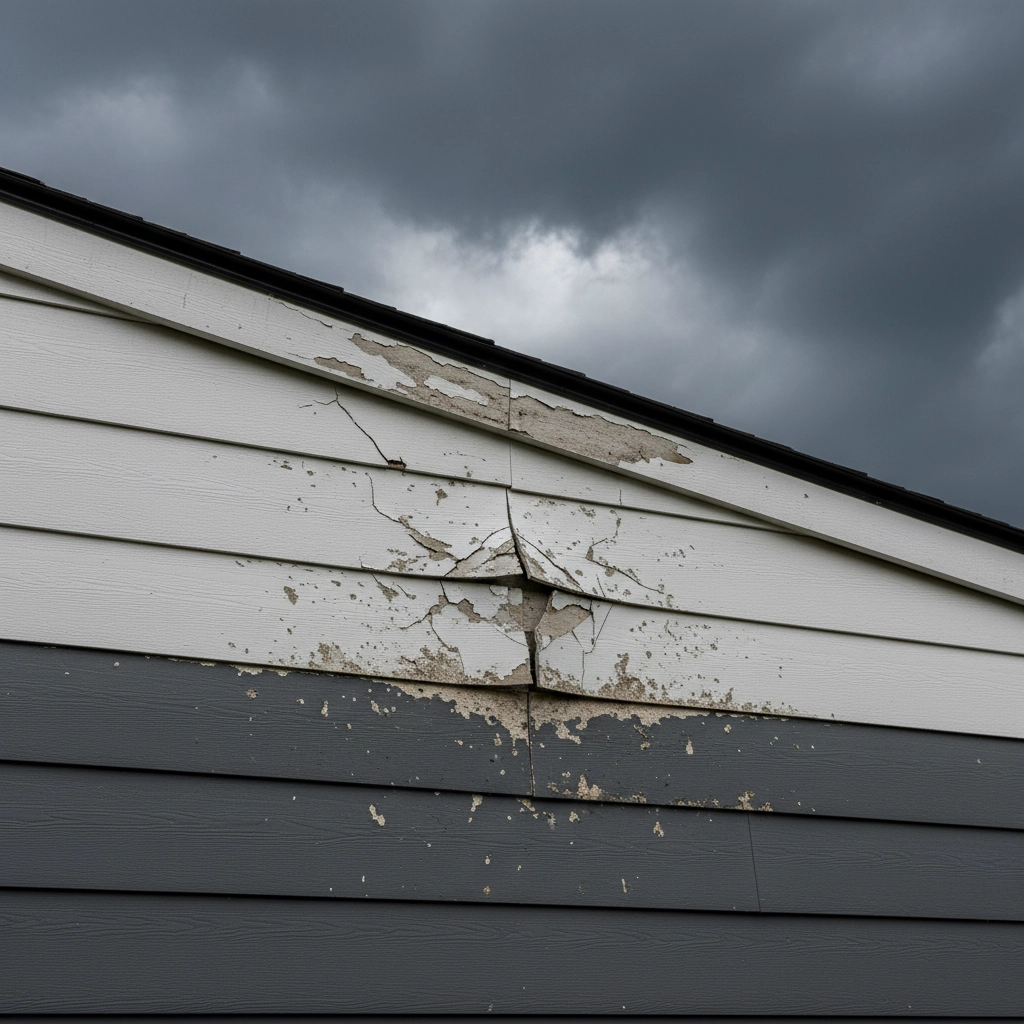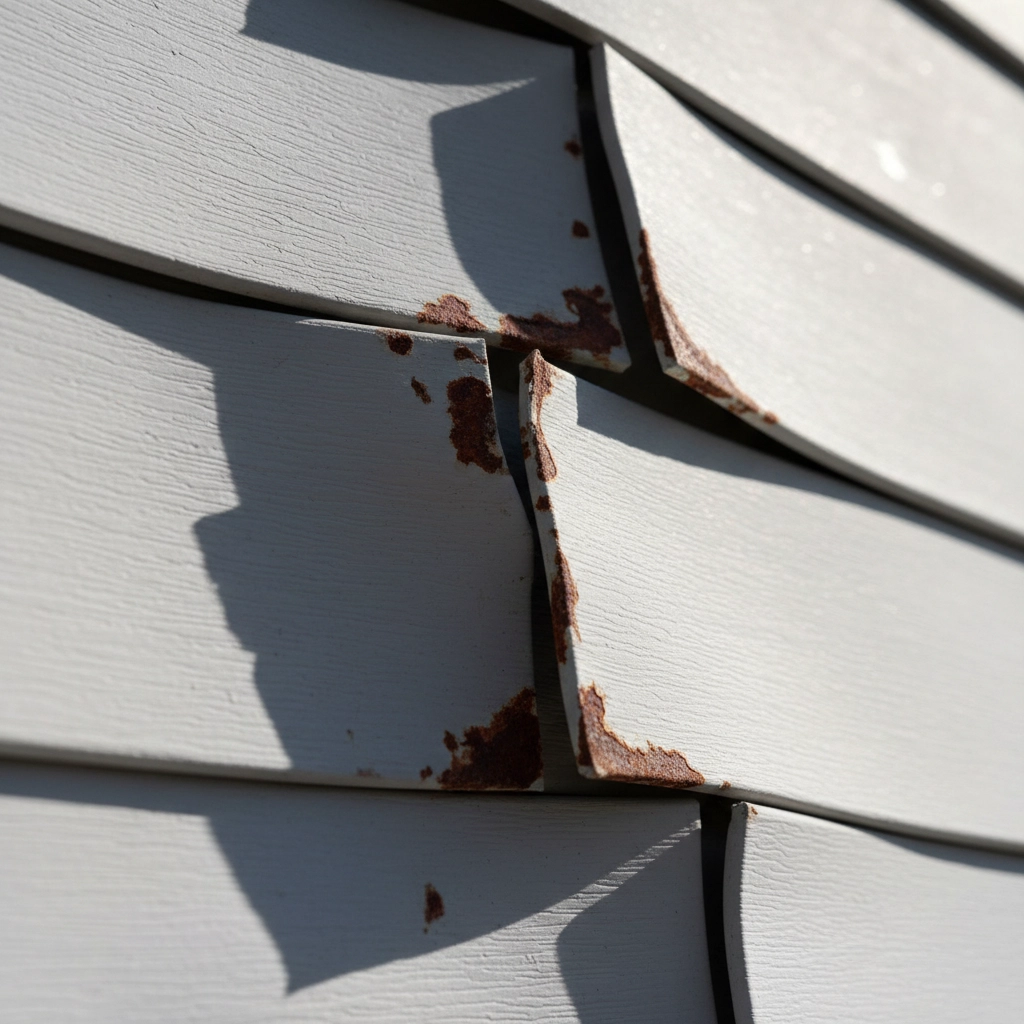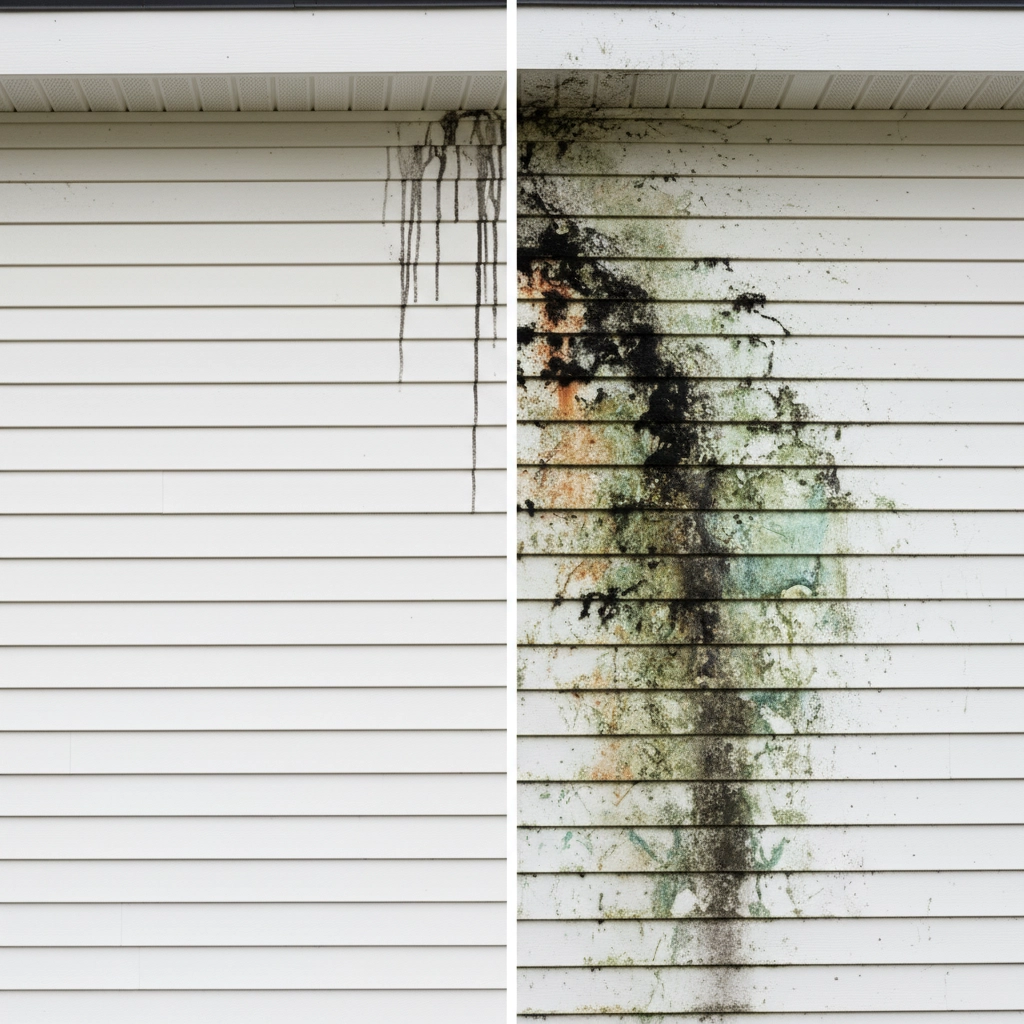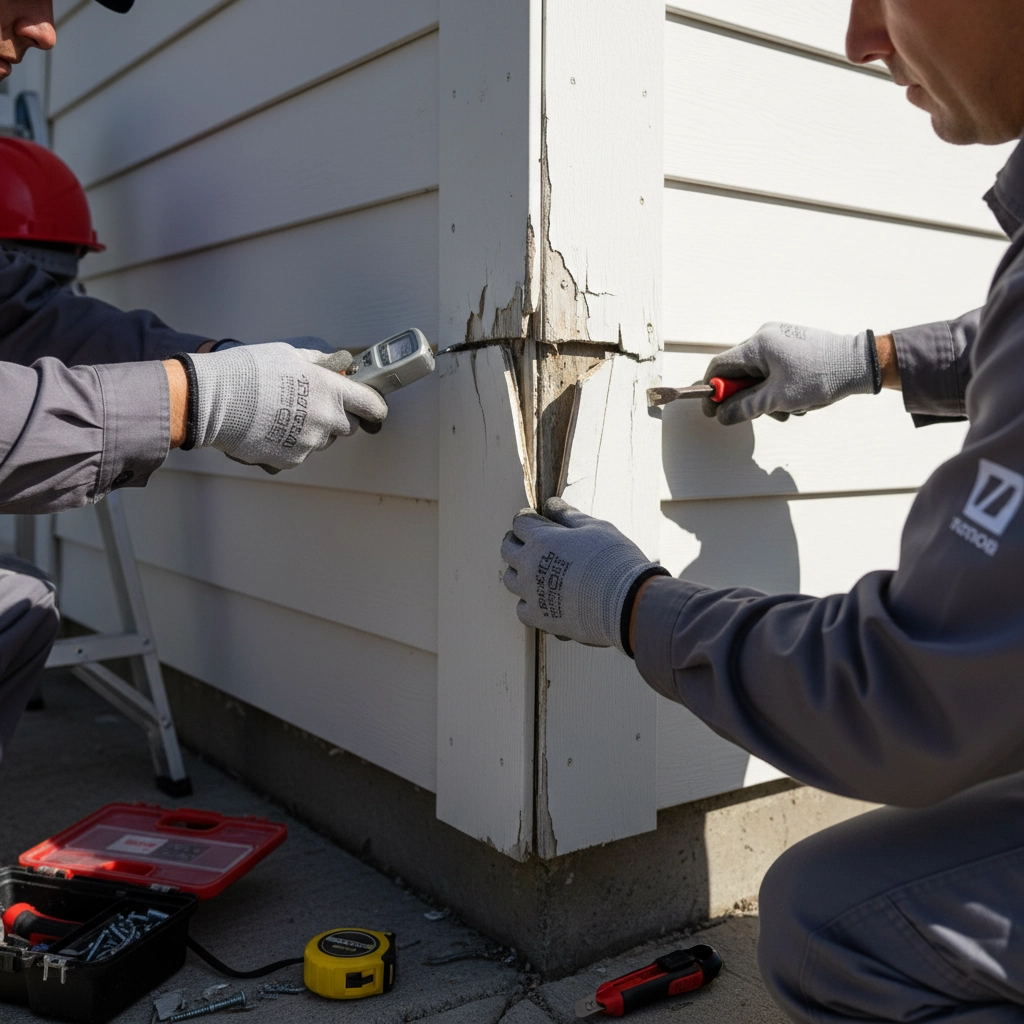Living in Chattanooga means your home's siding faces some of the most challenging weather conditions in the Southeast. From sweltering summer humidity to severe thunderstorms and occasional winter freezes, Tennessee's climate puts constant stress on your exterior materials. Understanding when your siding needs attention can save you thousands in structural damage and keep your family comfortable year-round.
Chattanooga's Climate: A Perfect Storm for Siding Damage
Tennessee's climate creates a unique combination of threats that can quickly deteriorate your home's siding. Our region experiences high humidity levels throughout the year, promoting moisture infiltration and creating ideal conditions for mold and mildew growth. Spring and summer bring intense thunderstorms with hail and high winds that can directly impact siding panels, while the scorching summer heat and UV exposure accelerate material breakdown.
Winter adds another layer of complexity with freeze-thaw cycles that cause materials to expand and contract, creating cracks and gaps over time. This constant weather assault means Chattanooga homeowners need to be particularly vigilant about monitoring their siding condition.

1. Visible Cracks, Gaps, or Holes
One of the most obvious signs your siding needs immediate attention is visible damage like cracks, gaps, or holes. These openings create direct pathways for water infiltration, which can lead to serious structural problems. In Tennessee's humid climate, even small cracks can quickly expand as moisture seeps in and freeze-thaw cycles occur during winter months.
Don't ignore hairline cracks: they're often the first sign of material failure. What starts as a minor crack can become a major opening during the next storm, allowing water to reach your home's framing and insulation.
2. Warping, Buckling, or Loose Panels
Siding panels that appear warped, buckled, or loose indicate moisture damage or improper installation. Tennessee's extreme temperature fluctuations cause materials to expand and contract, and damaged siding can't handle these changes effectively. Vinyl siding is particularly susceptible to warping in high-heat areas that receive prolonged sun exposure.
If you notice panels that don't lay flat against your home or sections that seem to be pulling away, it's time to call a professional siding contractor in Chattanooga for an assessment.
3. Water Stains or Moisture Damage
Interior water stains on walls or ceilings often trace back to failing siding. When exterior moisture penetrates your home's envelope, it can cause extensive damage to drywall, insulation, and even structural framing. Look for discolored patches, peeling wallpaper, or paint bubbling on interior walls: especially after heavy rains.
Exterior moisture stains on your siding itself also indicate water isn't draining properly, suggesting potential underlying damage that needs professional evaluation.

4. Mold, Mildew, or Algae Growth
Chattanooga's humidity creates perfect conditions for organic growth on your home's exterior. Dark streaks, green patches, or visible mold and mildew on your siding signal moisture problems that extend beyond simple cleaning issues. These organisms not only stain your home but can also degrade siding materials over time.
While some surface growth can be cleaned, persistent or widespread organic growth often indicates moisture is penetrating behind the siding, requiring professional repair or replacement.
5. Fading, Chalking, or Paint Failure
Excessive fading beyond normal weathering, chalky residue on your hands after touching the siding, or peeling paint are signs of material breakdown. While some fading is expected over time, rapid color loss or coating failure exposes underlying materials to Tennessee's harsh elements.
UV damage combined with moisture exposure accelerates the deterioration process, making your siding vulnerable to more serious problems like cracking and water infiltration.
6. Storm Damage from Hail or Wind
Living in tornado alley means storm damage is always a concern for Chattanooga homeowners. After severe weather events, inspect your siding for dents, dings, missing panels, or displaced sections. Even minor hail damage can compromise your siding's integrity and create entry points for moisture.
Don't wait to address storm damage: what might seem like cosmetic issues can quickly escalate into major structural problems during the next weather event.

7. Rising Energy Bills
If your heating and cooling costs have increased significantly without changes to your usage patterns, damaged siding might be the culprit. Gaps, cracks, or failed insulation behind compromised siding allow conditioned air to escape and outside air to enter your home.
This forces your HVAC system to work harder to maintain comfortable temperatures, especially during Tennessee's extreme summer heat and winter cold snaps.
8. Bubbling or Blistering (Vinyl Siding)
Blistering or bubbling on vinyl siding indicates moisture has penetrated behind the panels and is trapped against your home's sheathing. This trapped moisture can lead to rot in wooden framing and create ideal conditions for mold growth.
Blistering typically occurs when water vapor can't escape properly, suggesting installation problems or material failure that requires professional attention.
9. Soft Spots or Rotting Areas
Probe questionable areas with a screwdriver or similar tool: if the material feels soft or spongy, you've likely found rot. This is particularly common with wood-based siding products in Tennessee's humid environment. Rotting siding not only looks unsightly but can compromise your home's structural integrity.
Early detection and repair of soft spots can prevent the spread of rot to your home's framing, saving significant repair costs down the line.
10. Pest Infiltration
Gaps or holes in damaged siding create entry points for insects and small animals. If you notice increased insect activity around your home's exterior or find evidence of pest infiltration, damaged siding might be providing access routes.
Carpenter ants, termites, and other pests are attracted to moisture-damaged wood, making compromised siding a double threat to your home's integrity.

When to Call Professional Siding Contractors in Chattanooga
While some minor maintenance tasks can be DIY projects, significant siding damage requires professional expertise. If you've identified multiple warning signs, noticed recurring problems in the same areas, or discovered moisture infiltration, it's time to contact experienced siding contractors in Chattanooga TN.
Professional assessment can determine whether targeted repairs will solve the problem or if siding replacement offers better long-term value. Experienced contractors understand how Tennessee's climate affects different siding materials and can recommend solutions that will withstand our region's challenging conditions.
Prevention is Worth the Investment
Regular inspections and prompt attention to minor issues can prevent major siding failures. Schedule annual exterior inspections, especially after severe weather events. Clean your siding regularly to prevent organic growth, and address small problems before they become expensive repairs.
Quality siding installation and timely repairs protect your home's structural integrity, maintain curb appeal, and ensure energy efficiency. In Chattanooga's demanding climate, your siding serves as your home's first line of defense against the elements.
If you've noticed any of these warning signs, don't wait for the damage to worsen. Contact the experienced team at Chattanooga Exteriors for a professional assessment. Our local expertise and understanding of Tennessee's unique climate challenges make us your trusted partner in protecting your home's exterior for years to come.

